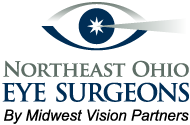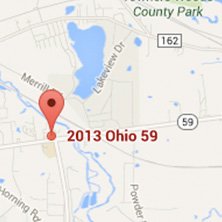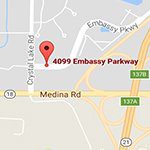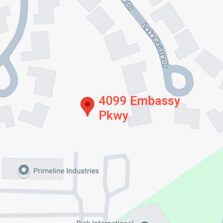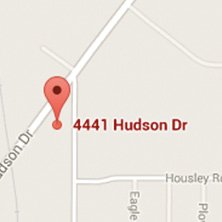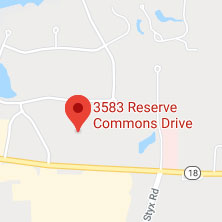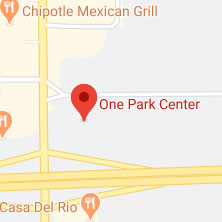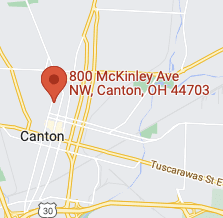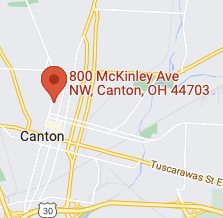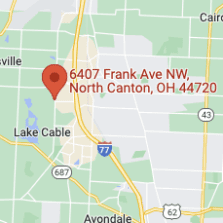Northeast Ohio Eye Surgeons is pleased to offer family eye care. With over 150 years of combined experience, our highly trained, award-winning doctors and staff are poised to serve all the members of your family, from infants to seniors, and everyone in between.
We offer routine eye exams, optical services, and the diagnosis and treatment of eye diseases, including eye surgery, for you and all of your loved ones. Please don’t hesitate to contact us if you would like to make an appointment or have any questions. Our family stands ready to serve yours.
Pediatric Eye Care
Northeast Ohio Eye Surgeons is proud to be able to provide family eye care. From birth and beyond, eyesight and ocular health are important!
Infants are born with a blurry vision which improves quickly within the first few months of life. Unfortunately, most children are unable to tell us when there is a problem, likely because they have been this way their whole life, or they are unable to find the words to describe their issue. This is why an early comprehensive eye exam is necessary to detect issues that may be diagnosed during an examination:
These disorders are much easier to correct in younger children. Let our pediatric eye care physicians do an eye exam to deep dive into a solution.
Children can be assessed without even having to say a word! Many targets can be used that can tell us how well the child is seeing. We are also able to estimate a prescription without having to ask “which is better… 1 or 2?”. Even the most uncooperative patient can be checked for vision issues.
Children should have their first comprehensive eye exam before their first birthday. If there are no concerns noted at this exam, typically another exam is performed at 3 years old. Waiting until a child complains of a vision issue may mean years of silent suffering and potential missed opportunities to correct the issue. Be on the lookout for signs that a child’s vision is not working appropriately such as—excessive eye rubbing or blinking, eyes crossing or wandering outwards, or poor/difficult eye contact.
Dr. Zaczyk, our pediatric optometrist, is great at making both the child and parent feel comfortable. She makes most of the “testing” feels more like a game than a test. She will do her best to keep the child engaged and move the exam along quickly to prevent fatigue but still take time to address all of your questions or concerns.
If your child is nervous about going to the eye doctor for the first time, we recommend watching the exciting and fun video below with them so they can understand what to expect for their first eye exam.
InfantSee
A child’s first complete eye exam should take place between 6 months and 12 months old. At 6 months old a baby should be starting to use their two eyes together as a team. The InfantSee program is a completely free (no insurance, no charge) examination for babies 6 months to 12 months old in which a baby is assessed for how well they see, any potential prescription, eye alignment, and ocular health. Please expect your baby to be dilated during this exam—they usually don’t mind at all!
For helpful information and pointers to prepare for the exam please visit: https://infantsee.org/
Vision Therapy
Rooted in the idea of neuroplasticity, vision therapy can be adapted for all ages and capabilities. Vision therapy is helpful for issues that cannot be corrected by glasses or contact lenses alone. Think of vision therapy as physical therapy for the eyes and brain. By enhancing the connection between the brain and eyes, we are able to change function. Vision therapy is meant to help everyone reach their full potential. There are many reasons people choose vision therapy. Some examples are: poor eye tracking, poor eye teaming (strabismus), decreased vision in one eye (amblyopia), and double vision. Vision therapy can also improve learning related issues.
Traumatic Brain Injury
Traumatic brain injury (TBI), mild traumatic brain injury (mTBI) and concussion can all take a toll on our visual system. There is not one part of the brain that is not touched by vision. Research shows that the effects of even a mild concussion can take days, weeks or years to resolve. Visual acuity (the ability to see 20/20) may not be affected, however there is much more to vision than sight alone. Tracking, teaming, and focusing all play an important part in seeing to gather information and any of these three things can be affected with a head injury. Other problems that may arise after a head injury are double vision, light sensitivity, visual fatigue, difficulty reading, decreased depth perception, and/or blurred vision.
If you or someone you know has had a head injury and is experiencing visual problems, contact our office today.
